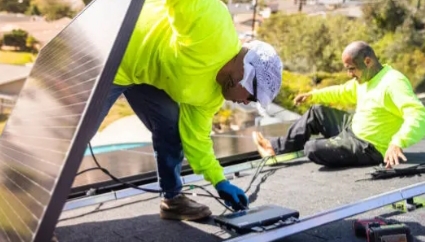In our previous post, we discussed the HS code for inverters, where we detailed everything you need to know about the inverter’s HS code and also revealed the recent HS code for inverters. Having said that, let’s now turn our attention to a more precise topic, which is the inverter parts HS code. So, if you are interested in importing or exporting inverter parts, then this article will be of immeasurable help to you. Keep tabs as we go through it together.
When people talk about inverters, most of the attention usually goes to the inverter itself, the big box that changes DC to AC and keeps your lights and appliances running. But one thing that often gets overlooked is the inverter parts, and more importantly, the HS Code that is attached to these parts when importing or exporting them.
If you have ever tried to ship or buy inverter parts from another country, you will quickly realize that without the right HS Code, your goods can get stuck at customs. So in this guide, let’s sit down and go through inverter parts’ HS Code in a way that is easy to understand. This guide is simply designed for your reading and understanding pleasure.

Why Should You Care About Inverter Parts HS Code?
Most people only think about inverters when there is no light, and they need backup power. But if you are into business, solar energy, or even personal use of inverters, knowing the HS Code for inverter parts is super important. The reasons why you should know the inverter parts’ HS code are
- If you want to import inverter spare parts, like circuit boards, transistors, fuses, capacitors, or fans, you will need the correct HS Code.
- If you are exporting inverter components, customs officers in the receiving country will classify your goods with HS Codes to determine tariffs and duties.
- Even as a technician or someone trying to buy spare parts online, understanding the HS Code can help you avoid buying the wrong item or dealing with unnecessary delays.

So, it’s not just about being a trader; it’s about making your life easier, avoiding customs wahala, and making sure you are playing by the rules.
HS Code for Inverter Parts
First of all, the HS Code (Harmonised System Code) is a standardised system that the world uses to classify goods. Every product you can think of, from food to electronics, has a unique HS Code. This code usually starts with six digits globally, and some countries may add extra numbers to make it eight or ten digits.
For inverters, the HS Code generally falls under the broader category of electrical machinery and equipment. But when we zoom in on inverter parts, they can be classified differently depending on what type of part we are talking about.
Common HS Codes for Inverter Parts
Here are some examples:
- The HS Code for inverters as a complete unit (static converters) is 8504.40.
- The HS Code for parts of inverters and other electrical static converters is 8504.90
- The HS Code for switches, boards, panels, control units, and other related components is 8536/8537/8538
But the most general and widely accepted one for inverter spare parts is 8504.90 or 85044090
To put it simply, if you are importing or exporting inverter parts, you will most likely use this HS Code 8504.90 unless it’s a very specific part that falls under another category.
Conclusion
Knowing the HS Code for inverter parts is vital because it is not just some boring paperwork matter; rather, it’s the key to making your import and export journey stress-free. Without the right HS Code, your goods could get delayed, attract the wrong duties, or even be seized at customs. But with the right code, especially 8504.90 or 85044090, you are already one step ahead.
So, whether you are a businessperson bringing in inverter parts in bulk, a technician trying to order a single component, or even someone exporting to another country, understanding inverter parts’ HS Code gives you peace of mind. It keeps you compliant with international trade rules and saves you from unnecessary customs wahala.
Next time you think of inverters, don’t just stop at the big machine itself; remember the parts that keep it running and the HS Code that makes sure they move smoothly across borders. Knowledge, in this case, truly saves you time, money, and stress.